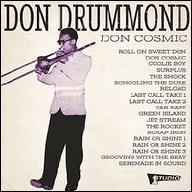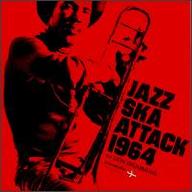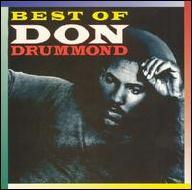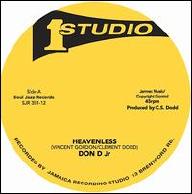Drummond's genius did not come without a price, however -- a notoriously eccentric man who suffered from bouts of manic depression, his erratic behavior earned him the nickname "Don Cosmic" from Dodd, and it was a moniker he rarely failed to live up to. Still, when Studio One musical director Jackie Mittoo set about assembling the Skatalites in 1964, he did not hesitate to bring Drummond aboard, and he quickly emerged among the group's creative and spiritual leaders. The quintessential ska band of their time, the Skatalites had an influence that was incalculable -- their 1964 debut, Ska Authentic, ruled Jamaican airwaves throughout the year, and in addition to leading sessions with all of the island's top solo artists, they also helped launch the careers of newcomers including Delroy Wilson, the Wailers, Lee Scratch Perry, and Ken Boothe. Drummond's composition Man in the Street earned the group a Top Ten U.K. hit later in 1964, and a year later his adaptation of the theme to the film #The Guns of Navarone duplicated the feat.
By that time, however, the Skatalites were no more, their demise brought about by the beginning of Drummond's own tragic downfall -- on New Year's Day of 1965, he was arrested for the murder of his girlfriend, exotic dancer Marguerita Mahfood. Her body was found in his home, the victim of multiple stab wounds; after a brief investigation, Drummond was deemed legally insane, and committed indefinitely to Bellevue Hospital. He died there on May 6, 1969, at the age of 37 -- although officially explained as a suicide, there was no official autopsy, and rumors about his death continue to swirl to this day. According to research uncovered by Bob Timm of the Ska Mining Company, at the memorial service Supersonics drummer Hugh Malcolm ripped up the death certificate, charging the hospital staff with murder and calling Drummond a victim of the government authorities who regularly targeted Kingston area performers; others claimed Drummond was slain by mobsters in cahoots with the family of Marguerita Mahfood. In any case, his death was the true end of an era, but his influence lives on. ~ Jason Ankeny, Rovi

















